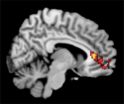(Press-News.org) VIDEO:
New research from the University of Copenhagen and Copenhagen University Hospital shows that low blood vitamin D levels increase mortality. The study included 96,000 Danes and was recently published in...
Click here for more information.
Vitamin D deficiency is generally associated with an increased risk of poor bone health. However, recent studies have shown that low levels of this important vitamin also involve an increased risk of other diseases and higher mortality rates. For the very first time, a brand new scientific study has established a causal relationship between low vitamin D levels and increased mortality. The researchers have not only established a statistical relationship as in previous studies.
- We have conducted a major Danish study, in which we have examined the connection between genes associated with permanent low levels of vitamin D and mortality. We can see that genes associated with low vitamin D levels involve an increased mortality rate of 30 per cent and, more specifically, a 40 per cent higher risk of cancer-related deaths. An important factor in our study is that we have established a causal relationship, says Shoaib Afzal, Medical Doctor at Herlev Hospital, Copenhagen University Hospital.
96,000 Danes from large-scale population studies
In the scientific study, which is based on the Copenhagen City Heart Study and the Copenhagen General Population Study, vitamin D levels were measured using blood samples from both studies, and specific genetic defects were examined. All participants were followed in the 100% complete Danish registers for mortality from 1976 until today.
- In previous studies, a close statistical relationship has been established between low vitamin D levels and increased mortality rates. However, the fact that vitamin D deficiency can be a marker for unhealthy lifestyles and poor health in general may have distorted the results. This led to our current study, which was based on an examination of the participants' genes - genes which cannot be explained by unhealthy lifestyles, says Børge Nordestgaard, Clinical Professor at the Faculty of Health and Medical Sciences, University of Copenhagen, and Chief Physician at Copenhagen University Hospital.
Preventive treatment?
- Our study shows that low vitamin D levels do result in higher mortality rates, but the best way of increasing vitamin D levels in the population remains unclear. We still need to establish the amount of vitamin D to be added, as well as how and when it is most effective: Should we get vitamin D from the sun, through our diet or as vitamin supplements? And should it be added in the foetal stage via the mother, during childhood or when we have reached adulthood? Børge Nordestgaard continues.
When the sun shines on our skin, the skin produces vitamin D. Evidence suggests that sunshine has a positive effect on our health, but sunburns must be avoided as they increase the risk of skin cancer. A diet rich in vitamin D or the intake of vitamin D supplements can also cover our need to some extent.
The researchers define 'a low level' of vitamin D as 'a level that is 20 nmol/L lower than normal'. In Denmark, a minimum level of 50 nmol per litre plasma is currently recommended.
INFORMATION:
Contact:
Shoaib Afzal, Medical Doctor
Mobile: +45 5134 4875
Email: Shoaib.Afzal@regionh.dk
Børge Nordestgaard, Clinical Professor
Mobile: +45 3028 7263
Email: Boerge.Nordestgaard@regionh.dk
Facts
The average Dane gets one fifth of the recommended minimum level of vitamin D through the diet and four fifths through sunlight.
Vitamin D is produced in the skin. The sufficient amount of sunlight to cover our need for vitamin D corresponds to 5-30 minutes of sunlight on arms, neck and head a couple of times per week. From October to March in Northern countries, however, the sun is much lower in the sky, which means that it does not provide enough light to start the production of vitamin D in the skin. Therefore, a healthy diet and possibly vitamin D supplements are very important sources of vitamin D during winter in such countries.
A daily intake of 7.5 µg of vitamin D is often recommended. Apart from certain mushrooms, only foods of animal original contain vitamin D (fish, meat, eggs, dairy products). It is recommended that we eat 200-300 g of fish a week. Particularly oily fish is rich in vitamin D.
Vitamin D is important to build strong and healthy bones, and vitamin D deficiency increases the risk of developing osteoporosis. Whether vitamin D supplements may have a protective effect on the development of certain cancer and heart diseases remains uncertain, which is why the recommendations regarding vitamin D supplements primarily refer to bone health. Vitamin D supplements are usually not recommended for healthy adults who eat a varied diet. However, vitamin D supplements are often recommended for pregnant women, children under the age of 2, people with dark skin, people whose skin is covered during the summer season and people over the age of 70.
A brief coping strategies therapy which provides stress relief and emotional support for people caring for relatives with dementia can reduce depression and anxiety and improve wellbeing at no extra cost to standard care, new research published in The Lancet Psychiatry suggests.
The study led by Gill Livingston, Professor of Psychiatry of Older People at University College London in the UK, found that family caregivers receiving the START (STrAtegies for RelaTives) programme were seven times less likely to develop clinically significant depression than those given usual ...
A new diagnostic technique -- resulting from monitoring thousands of courtship calls from songbirds -- can be used to safely map the human brain during complex neurosurgery, according to research from Neuroscientists at NYU Langone Medical Center and elsewhere.
The mapping process, first tested in zebra finches, involves gently placing a miniature electrical cooling device at different locations on a small region of the songbirds' brains. This slows down processing of complex neural behaviors, such as a birdsong or human speech.
In a report prepared for the Society ...
DURHAM, N.C. -- Holiday shopping can be mentally exhausting for anyone. But a new Duke University study finds that older adults seem to need extra brainpower to make shopping decisions -- especially ones that rely on memory.
The study appearing Nov. 19 in the Journal of Neuroscience suggests that older shoppers use an additional brain area to remember competing consumer products and choose the better one.
"The study gives a bright picture, actually," said lead author Nichole Lighthall, a postdoctoral researcher in Roberto Cabeza's lab at Duke's Center for Cognitive ...
LA JOLLA, CA--November 18, 2014--"Protein misfolding" diseases such as cystic fibrosis and Alzheimer's may be seriously exacerbated by the body's own response against that misfolding, according to a new study led by scientists at The Scripps Research Institute (TSRI).
The researchers examined patient cells and animal models of several diseases that feature chronic protein misfolding and found that in each case, a cellular defense system against protein misfolding, called the "heat shock response," was overactive. Reducing its activity lessened the signs of disease and ...
Sleep is a critical period for memory consolidation, and most people don't get enough. Research has shown that even brief periods of sleep deprivation can lead to deficits in memory formation.
In a new study, published in the Journal of Neuroscience, a team led by scientists from the University of Pennsylvania found that a particular set of cells in a small region of the brain are responsible for memory problems after sleep loss. By selectively increasing levels of a signaling molecule in these cells, the researchers prevented mice from having memory deficits.
Robbert ...
LOS ANGELES (STRICTLY EMBARGOED UNTIL 5 P.M. EST on NOV. 11, 2014) - Lou Gehrig's disease, also known as amyotrophic lateral sclerosis, or ALS, might damage muscle-controlling nerve cells in the brain earlier in the disease process than previously known, according to research from the Cedars-Sinai Board of Governors Regenerative Medicine Institute. The findings, published in the Nov. 12 Journal of Neuroscience, could shift researchers' attention from the spinal cord to the brain's motor cortex as the disease's initial point of dysfunction.
"In this study, we show the ...
Home exercise can ease feelings of hopelessness in people with coronary heart disease, according to a small study presented at the American Heart Association's Scientific Sessions 2014.
Feeling hopeless can be dangerous because it can discourage people from taking healthful steps such as exercising or quitting smoking, said Susan L. Dunn, Ph.D., R.N., lead author of the study and a professor of nursing at Hope College in Holland, Michigan.
People with hopelessness may also suffer from depression, which is marked by a loss of interest in activities they normally enjoy.
"For ...
A new trans-satellite wireless 12-lead ECG can identify the most severe type of heart attack swiftly and save significant time from ambulance to angioplasty, according to research presented at the American Heart Association's Scientific Sessions 2014.
An ECG measures the electrical activity of the heart and helps medical personnel determine if a person had an ST-elevation myocardial infarction (STEMI). Angioplasty, also known as percutaneous coronary intervention (PCI), is a procedure in which an inflatable balloon opens a blocked artery to restore blood flow to the heart.
During ...
In a small study in Japan, people who stopped smoking didn't face increased death risk if they gained weight, according to research presented at the American Heart Association's Scientific Sessions 2014.
"Quitters had a significantly lower risk of death compared to smokers regardless of their weight change after they stopped smoking," said Hisako Tsuji, M.D., lead author of the study.
Researchers compared deaths from all causes in 1,305 Japanese adults who quit smoking to deaths among 2,803 Japanese smokers. Participants in both groups were 65 percent men, average age ...
Using a smart phone app for education and feedback about heart-healthy behavior may decrease the risk for heart and blood vessel disease among young black women, researchers said in a pilot feasibility study presented at the American Heart Association's Scientific Sessions 2014.
"We need to raise awareness among women and their healthcare providers of gender and racial differences in cardiovascular disease," said Jo-Ann Eastwood, Ph.D., study lead author and associate professor at the University of California, Los Angeles School of Nursing. "Women are social by nature, ...




